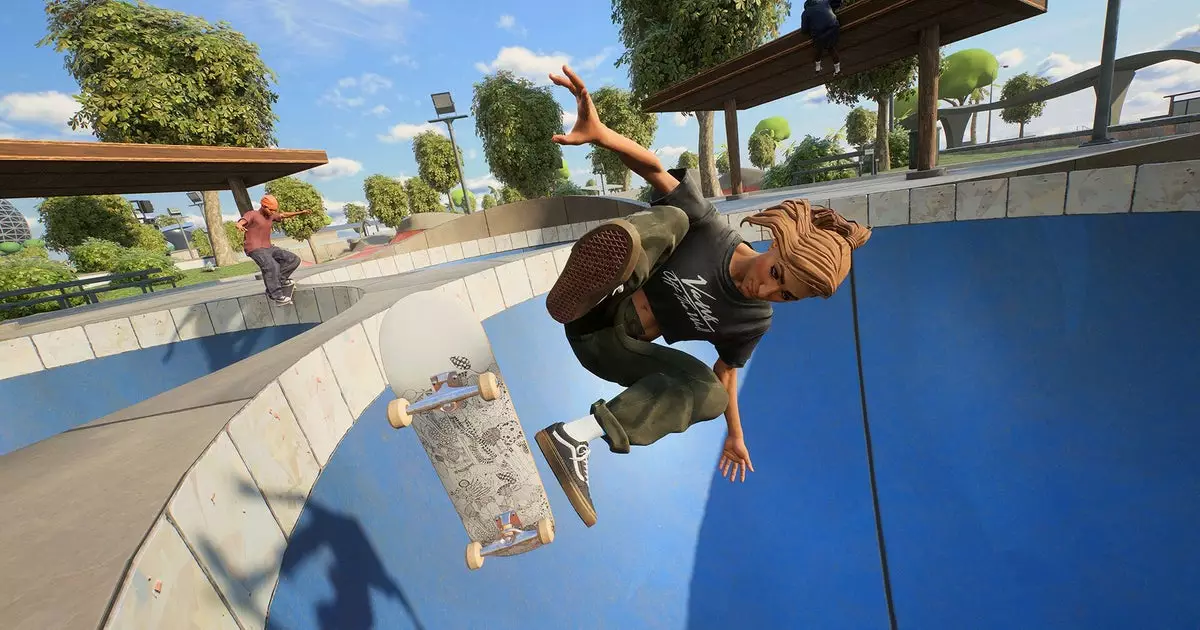The world of video games has a peculiar fascination with revivals. In recent years, we’ve witnessed beloved franchises being resurrected with modern twists, and few games have fans as enthusiastic as the Skate series. Following a long hiatus after Skate 3’s release in 2010, Electronic Arts (EA) is set to bring the franchise back with a bang. With the announcement of the new installment, simply titled “skate.” (note the lowercase styling), skateboarding enthusiasts from all over are preparing to relive the thrill of performing daring tricks, and for good reason.
The impending release of Skate promises to be a significant event, especially for those who have been yearning for a fresh skateboarding experience. The excitement is palpable, as players anticipate engaging with an expansive open-world environment that harkens back to the spirit of the original games while embracing contemporary gaming trends. This revitalized version aims to capture the essence of skate culture, allowing players to express their creativity and hone their skills in ways that resonate deeply with both newcomers and veterans alike.
Early Access and Playtesting: A Chance for Fans to Engage
Electronic Arts has announced that fans eager to get a taste of “skate.” can participate in the “Skate Insider” program for chances to playtest the game ahead of its official early access launch in summer 2025. This not only ignites excitement but also fosters a sense of community among the participants who will contribute feedback to enhance the gaming experience. The opportunity to join a dedicated group of testers is particularly enticing—a nod to the days when players felt more intimately connected to the development process.
However, while this initiative generates enthusiasm, it also raises questions about player inclusivity. EA is optimistic that allowing players to partake in the testing phase will provide valuable insights, driving the game’s development in a direction that resonates with its audience. The importance of early access cannot be understated; it serves as a pivotal moment where fans become co-creators, shaping the final product well before it hits the mainstream market.
Free-to-Play Model: Risks and Rewards for Gamers
With the shift to a free-to-play model, excitement is tempered by apprehension. Many gamers are understandably wary of potential pitfalls inherent in monetization strategies. While the allure of a no-cost entry point is undeniably attractive, concerns about in-game purchases and the potential for pay-to-win scenarios loom over the enthusiasm like a dark cloud. As history shows, free-to-play games can often lead to exploitative practices that detract from the overall experience.
The question on every fan’s mind is how EA will balance monetization with gameplay integrity. Will there be a fair system that respects players’ experiences, or will the game devolve into a relentless cycle of upselling flashy cosmetics? Players fear the impact of FOMO (fear of missing out) on their gameplay, as they may feel pressured to make purchases simply to keep up with their peers or to access special features.
The Evolution of Skating Games: A Rich Legacy
Despite the long wait for a new entry in the Skate series, the past decade hasn’t been devoid of innovation in skateboarding games. Titles like OlliOlli, Skater XL, and Session have enriched the genre, each with its unique take on skateboarding mechanics. These games have carved a niche in the market, showcasing that the appetite for skate culture remains robust, even when the Skate franchise was dormant.
Moreover, the flamboyantly charming Skatebird offers a refreshing glimpse into the world of skating games, proving that creativity knows no bounds. These developments highlight that while the wait for “skate.” has been lengthy, the thirst for quality skating experiences has only intensified. This competition can serve as a double-edged sword; either motivating EA to deliver a stellar product that meets elevated expectations or risking disappointment if they rest on their laurels.
Social Connectivity: An Online-Only Experience in a Digital Age
The decision to make “skate.” an online-only game is bound to provoke diverse opinions. While arguments for creating a dynamic, interconnected skateboarding community are compelling, this choice also raises concerns, particularly given the ongoing struggles of other online games. Players are apprehensive about trusting EA, especially amid discussions surrounding the termination of online services in other mainstream titles.
Yet, there exists potential for building vibrant social interactions, where players can engage, compete, and share their skating feats globally. The rise of multiplayer games has shown that connectivity can provide richness to the gaming experience, fostering relationships and bringing players together in unprecedented ways. However, the success of this model hinges on EA’s ability to maintain a reliable service and to keep the community engaged in a positive manner.
With the imminent arrival of “skate.”, fans are poised tentatively on the brink of a new gaming era. The blend of nostalgia and innovation promises an exhilarating journey, marking a hopeful revival for the franchise that defined skateboarding gaming for many.

